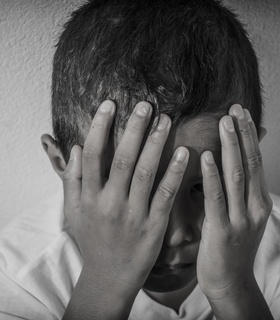Article at a Glance
- Be aware of the signs of child abuse and be ready to take a stand.
- If you feel overwhelmed with parenting, talk to your pediatrician about available resources.
- Carefully screen and get to know the people who interact with your children.
- Educate your child on how to respond to and report abuse.
Child abuse can occur at every socioeconomic level and across all ethnic and cultural lines. It can even happen right here in Utah. In fact, we have the 8th highest amount of substantiated child abuse cases in the country. Prevent Child Abuse Utah (PCAU) estimates that the economic impact of child abuse in Utah totals about $2.84 million per day.
The toll on our families and communities is staggering. However, there is much we can do to prevent child abuse from happening.
Preventing child abuse at home
- Be aware of the signs of child abuse and be ready to stand up for your child. Remember that your most important role is as your child’s protector.
- If you were a victim of child abuse, see a counselor to help you work through past trauma. Don’t risk continuing the cycle of abuse.
- If you are struggling with feelings of stress, anger, or frustration, reach out for help through parenting classes, support groups, or therapy. Avoid situations where you might feel isolated. Child abuse most often occurs when parents are feeling overwhelmed and isolated.
- If you or somebody in your family is struggling with substance abuse, get help.
- Don’t discipline in anger. Instead, take a moment to calm down. It is also okay for you to take a timeout if you need to.
- Carefully screen any childcare providers. Picking somebody to care for your child is one of the most important decisions you will ever make. It is a good idea to ask for references and to do a background check. You should also be allowed to make unannounced visits and have unrestricted access to your child.
Being a parent is hard. The demands of parenthood are often overwhelming. It is normal to feel stressed and frustrated. However, it is important for parents to learn how to handle these feelings in healthy ways. If you think that you might need help, don’t wait until things get worse. Start by talking to your child’s pediatrician about available resources.
Other available resources:
- Prevent Child Abuse Utah has a number of wonderful programs intended to support families. They even offer one-on-one help in the home free of charge.
- The National Center on Shaken Baby Syndrome is right here in Farmington, Utah. They have a number of different programs, including the “Period of PURPLE Crying.” The program is an evidence-based infant abuse prevention program that teaches parents the dangers of shaking an infant and how to handle crying.
- Nurse-Family Partnership has nurses who help support first-time mothers through their pregnancy and help educate them on how to become knowledgeable and responsible parents.
Preventing abuse outside the home
- Volunteer in the classroom or for after-school activities. Get to know the people who are interacting with your child.
- Carefully evaluate and limit (when possible) any time spent in isolated, one-on-one situations with other children, youth, and adults.
- Investigate further if your child is behaving differently, has any unexplained injuries, or talks about being mistreated.
- For older children, teach them to stick in a group and to avoid interacting with strangers.
- Teach your children that they can say “no” when they feel uncomfortable or scared.
- Tell your children to always come talk to you or the closest adult if somebody hurts them or makes them feel uncomfortable.
- Make sure your children know that they can come talk to you if they are confused about something that has happened and that they won’t get in trouble.
- Don’t make your children feel scared, but focus on being empowered. By teaching them how to react and how to come talk to you, they will be more confident and less likely to be a victim.
- Reach out to other families in your community and get to know your child’s friends.
- The risk of abuse increases when families are living in poverty, drug or alcohol abuse is involved, or the parents are teenagers. As a community, it is especially important to reach out to these families.
More information:
Child abuse – a hidden epidemic
Would you recognize child abuse?
National Child Abuse Prevention Month and Sexual Assault Awareness Month
Protecting our children from sexual abuse
Share this article:
